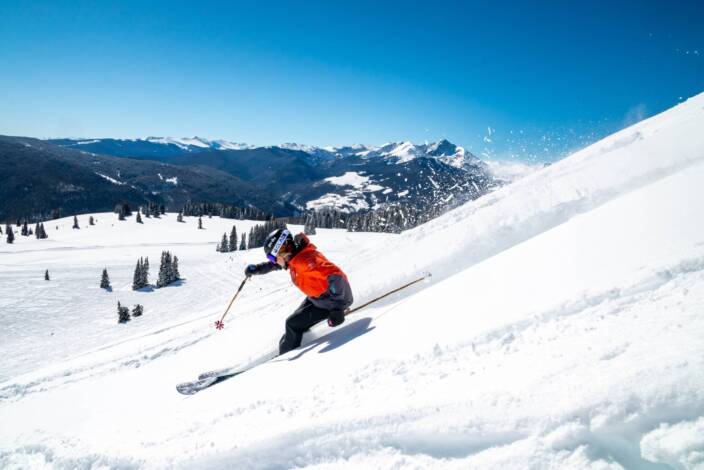
Stay Local? Sure. But Many Canadians Are Eager For A Taste of Europe
December 22, 2020 Jim Byers
A recent survey found that Canadians intend to stay close to home once we get the okay to travel again. But their next choice for where to visit was Europe, and that’s just fine by the head of the Canada chapter of the European Travel Commission.
I recently had a chat with Pascal Prinz, who’s chair of the Canada chapter of the ETC and also Director Canada for Switzerland Tourism.
Prinz said he’s encouraged by news of vaccines and more rapid-testing around the world, and that he believes there’s a strong, pent-up demand for Canadians who want to visit Europe.
A recent study by the Travel Health Insurance Association of Canada found that most Canadians intend to stay close to home when travel resumes at a more normal level. But their second choice for a destination was Europe.
“We’re optimistic for next summer and next fall,” Prinz said. “This is also something that Canadian tour operators and travel agents confirm; that there’s high interest in Switzerland and Europe for next summer and fall.”
It doesn’t hurt that Switzerland, in particular, has a reputation as a safe, secure and orderly destination with amazing outdoor activities.
“We certainly hope so. I think you and your followers have all re-discovered the benefits of the outdoors this summer. We all went hiking and biking. Doing that next year with your friends and your family in the Swiss Alps, we’re convinced, will make many Canadians happy.

“It’s good for our mental health, it’s good for our well-being, and I think we need it after this crazy year. The demand is also there.”
Prinz said it’s not just the mountain meadows and alpine vistas that make Switzerland appealing. It’s also small cities that will appeal to travellers who might not yet be ready for bustling metropolitan centres.
“We have small cities like Lausanne, Lucerne, Bern and Basel,” he said. “Our cities are small compared to North American cities. I call them boutique towns.”
Not only are they beautiful cities, most are on lakes or rivers, so visitors can enjoy nature and city life all at once.
“That’s one of my all-time favourite things in Switzerland to do; urban swimming. I used to to live in Bernand I would do that often on my lunch break or after work. You float down the river with the locals, it’s really the best. And it’s free. Zero Canadian dollars.
“The Swiss loosen up in nature, so if you put us in water or in the mountains, we definitely become very sociable,” said Prinz. “It’s a great way to meet local people.”

Prinz said visitors should spend plenty of time exploring lesser-known districts and towns, such as Gstaad (an upscale resort town near Bern) or Murren (in the Bernese highlands) or Engelberg (a small village high in the alps. Another great option is Locarno, in the Ticino district in south Switzerland, hard up against Italy.
“We Swiss all love it,” he said. “Many of us go there on vacation. It’s right next to Lake Como.
“We say it maybe combines the best of both worlds of Switzerland and Italy. The food is amazing, the gelato, the pasta, the pizza, but then also the lakes are just stunning, and you have palm trees. People don’t know there are palm trees in Switzerland. They might think it’s always cold, but that’s not at all the case.”
Visitors to Switzerland also can explore French-speaking regions near Lake Geneva, German areas to the north and, in the southeast corner of the country, a region that still speaks a Latin-based language called Romansh.
Putting on his European cap, Prinz said Canadians love Europe in part because of its history.
“We are old,” he said with a laugh. “We are very, very old.”
Europe, of course, also is romantic and elegant and very much a part of Canadian culture.
“When I talk to people here, we’ve all been eating Italian food, Swiss chocolate, Spanish wine, Irish whiskey, Belgian fries, Portuguese egg tarts. I think the friendship between Canada and Europe is very, very strong.

“I think Canadians have missed Europe and they’re itching to go back. And a lot Canadians have European ancestry or roots.”
Prinz said it’s important to take time and really savour a visit to Europe.
“Don’t just zip into the capital city so you can check off your list and take a selfie,” he said. “Travel in my opinion is one of the most sophisticated forms of human interaction. It allows us to learn, to get inspiration, and hopefully become wiser.”
He also suggests checking out smaller, lesser-known cities rather than always focussing on the most famous ones. Prinz noted that there are wonderful national and local parks all over Europe, as well as beautiful cities.
“Visit our mountains, our coastlines, our beaches, our forests. Venture out. Hop on a bike. Go hiking.
On top of all that Europe is very compact. The driving distance between Copenhagen and Rome, two wildly different cities with completely different cuisine and culture, is the same as from Toronto to Kenora. If you drive that north and west from Toronto you’re still in Ontario. If you drive that far in Europe you might venture into five countries along the way.
Prinz said he suggests travelling by train.
“The high-speed train system in Europe is fantastic and the distances are so short. A great way to travel in a sustainable way, and that’s also what we believe in.”
“You’ve had to time to dream,” he said. “So, keep dreaming and come to Europe next summer.”
About the Author













